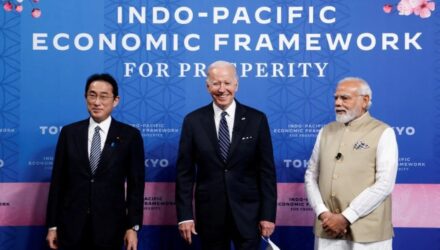Country Commissioner

James Kim
CEO, American Chamber of Commerce in Korea; Fmr CEO of Microsoft Korea & GM Korea
Commissioner for South Korea
Amid the growing geopolitical dynamics in Asia, the U.S-Korea partnership has become ever more paramount in ensuring regional economic security. Korea is one of the first countries to join the Indo-Pacific Economic Framework (IPEF), stepping up its regional role to safeguard liberal democracy. In this light, AMCHAM appreciates the Global Tech Security Commission’s mission to promote strategic collaboration in key emerging technologies from U.S. allies and partners. I firmly believe that the Commission’s bipartisan and global scope would allow for significant thought leadership and business strategies to be formed across sectors. As the Global Tech Security’s Commissioner representing Korea, we look forward to doing our best at AMCHAM to identify opportunities to enhance the economic and security alliance between the United States and Korea.
Related Content

The White House has simultaneously launched a video campaign to highlight the array of non-tech jobs associated with the semiconductor industry. Biden has visited four other computer chip sites since September, with the highly paid factory jobs promising spillover hiring for construction, janitorial services and other businesses.

As a rich and powerful nation, the United States has a moral obligation to provide humanitarian assistance around the globe. And we have done so, from both public and private sources, more than any other nation. But beyond that, the United States must focus its aid on countries that are strategically relevant to it.

A group of distinguished bipartisan leaders in foreign policy and national security, including Senators Jeanne Shaheen (D-NH), Todd Young (R-IN), and Bill Hagerty (R-TN), as well as Representatives Michael McCaul (R-TX) and Josh Gottheimer (D-NJ), serving as Honorary Co-Chairs of the Global Tech Security Commission, have issued a call to their fellow Members of Congress to join the effort to develop a Global Tech Security Strategy to defend freedom against technological authoritarianism.
